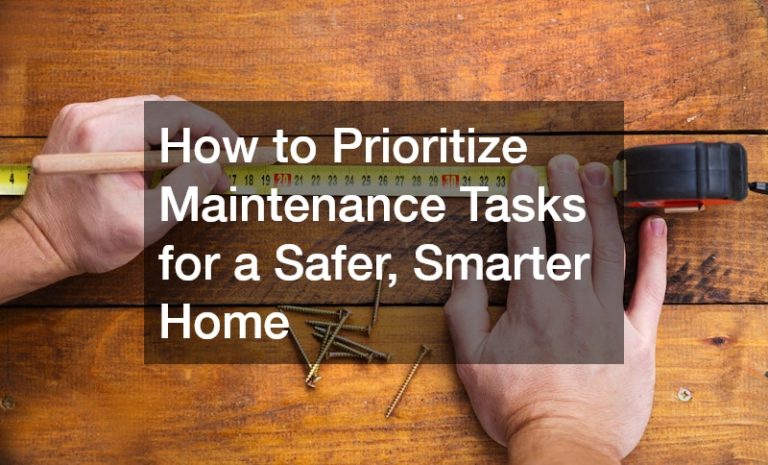

Many homeowners have been doing different DIY projects to save money. They also are possibly doing them as a hobby, and possibly doing them with loved ones to bond with them.
Whatever the reason, the main reason many people take on DIY projects is to save money. And while it is good to save money, there are some DIY projects that require only a trained professional. If you or a loved one who isn’t trained try to do such projects, the outcome is usually a catastrophe. And as a result, you may have to pay much more to correct the damage made from a DIY attempt. It most likely will cost much more than if you would’ve hired a professional for the start.

The Costs for Home Maintenance and Improvement
The big down payment for your home and other ongoing expenses, like mortgage, utilities, property tax, home insurance, and repairs, is one thing. However, there are also tons of other home expenses that must be done on occasion. Some of these home projects may be required every few weeks, every few months, or even several years. And while you may think this isn’t a problem especially for projects every several years, these projects usually cost several thousands of dollars.
According to Wells Fargo, homeowners should expect the total price of annual home repairs to cost between 1% to 2% of their home’s total price. This amount is only for routine maintenance. When it comes to major remodeling jobs, costs vary in the thousands. According to the HomeAdvisor site, the average cost for bathroom remodeling is $9,000, basement remodeling is $15,000, and kitchen remodeling is $20,000.
The biggest expense with such home projects comes from labor. The cost of materials is peanuts compared to labor costs. For instance, repairing a door alignment only costs $5 for the required hardware, but the costs to pay a handyman range from $30 to $125 an hour. And furthermore, the minimum charge for a handyman may be $150 to $350.

What Home Projects Should Only a Trained Professional do?
Only trained professionals should do complicated jobs, like electrical work, plumbing, and tile setting. In fact, the following includes three major signs that a project is too dangerous to be a DIY job:
- If it Can Kill You
You must ask what is the worse thing that can happen if you attempt this project. For a residential roof repair or roof installation, for instance, you could kill yourself from falling down the roof. You will need a professional roofer. This is true especially if your home is a few stories high.
If it Can Destroy Your Home
One main example of this is complicated plumbing jobs. You can cause major water damage to your home when you attempt to unstop the drainage. In this case, you may accidentally cause damage to a pipe. And even if you successfully complete a plumbing job, you still can get a water leak if something is not installed properly and tightened. This is important even when it comes to replacing or building a shower. In such cases, you will need to consult highly trained, professional shower remodeling contractors. Sometimes, these leaks can be undetected for years until you notice a weakened wall that is about to collapse.
Also, if you hire a plumber who makes a similar mistake, the plumber will be at fault. So, according to the law, the plumber will be responsible for the costs to fix the damage.
- If a Permit is Required
If a job requires a building permit, the job is too complicated for DIY. A permit is the guarantee of a safe construction job completion. A professional with the proper licensing and permit to handle the standard water heater is the only one to work on water heaters. The standard water heater involves gas. So, there could be a serious risk of poisoning, explosion, or a fire if an untrained person attempts to work on a water heater. A trained professional will know how to cut into gas lines safely and securely.

What Home Projects are Alright for DIY?
On the other hand, some jobs are not a huge risk to do. These jobs include painting, building a pantry, more storage space, insulating the attic, and building an easy gazebo.
Jobs, like lawn mowing, require some skill and may be alright for those who are familiar with mowing the lawn. Otherwise, a person who is not familiar with it can get an injury, like cuts and bruises, when trying to operate the lawn mover. This person can also cause damage to the lawnmower, flowers, bushes, and other items that may be on the lawn.
Jobs, like installing a glass door or a vinyl window, could be something some people can do too if they are familiar with such projects. Otherwise, some of them who are familiar with assembling things together can get the instructions or figure out how to put such things together.
If a person has no familiarity at all, it could be dangerous to try to install a glass door. The glass door can fall on the person or something, break and splatter, and then hit and cut the person.
So, to figure out which DIY projects you can do, you must consider different factors. This includes the overall cost of the jobs, the available time you have to complete the project, how long the project takes, and your skill level.
Learning the Ropes
If you are determined to take on less risky DIY projects but don’t have any training, there is a plethora of information online from experts. For instance, you can type a source, such as the DIY Network, to get their site. This source has all types of easy repair jobs you can learn to do. These jobs could be repairing a squeaky door hinge or a leaky toilet, for instance.
When you type in search engines with a keyword phrase, like “how to do DIY projects”, there will tons of YouTube videos to choose from. There will also be one or two DIY books to order and even some blogs from experts. Some social media sites, like Pinterest, also have an array of DIY selections to choose from. Otherwise, more complicated projects require years of training for anyone to handle them.

Tips to Find Top-Notch Contractors in Your Area
Now, you know the importance of hiring top-notch contractors for jobs that you dare not to do. The next important thing to do is to make sure you find top-notch contractors in your area. There are tons of contractors out there, and of course, they all are going to market themselves as delivering superior services. However, it is critical to perform your due diligence to see who really are amazing, local contractors. The following includes tips on how to find them:
- Ask around
It is very important to find out by word of mouth from your loved ones about local contractors worth looking into. You also may know of a neighbor who just had some remodeling done that you like. If so, ask the neighbor. You can get recommendations from a friend who may be an investor. And even if you have a contractor you trust, you still may need to ask the contractor for other contractors who can do a job, not in the contractor’s field.
From the list you gathered from your loved ones and associates, you can start interviewing the recommended contractors.
- Do Thorough Online Searching
It is important to thoroughly check customer reports, such as Yelp or Google, to see customers’ testimonials and ratings. You should also check with the Better Business Bureau (BBB). Additionally, checking the contractors’ credentials, how long they’ve been in business, and how much experience they have are very important.
Once you complete your thorough research, you should have at least a few prospects to choose from along with the referrals. Then, you can prepare to interview all the prospects.
- No Matter What- Obtain References
This is true for new contractors. Many times, new contractors may not have customer testimonials or even a report of their business on BBB. In this case, references will be the only way you can verify the contractors’ credentials. You will want to talk to property managers, investors, other contractors, etc.
When you contact the references, make sure to ask them the following:
- Timeliness — Did the contractor complete the job as agreed and on schedule? Was the contractor on time for the job?
- Quality — How was the quality of work? Were there any repairs needed or issues?
- Work ethic — How clean and orderly was the contractor’s work? Did they speed through the project, or was there an issue with attention to detail? Did the person occasionally disappear or take many breaks?
- Will they rehire the contractor, and what projects will they hire the contractor for?
Once you received the answers, you can make an accurate decision on whether to continue with the new contractor.
- Do your first meeting on a job site
Forget interviewing a contractor at Starbucks or your office. Instead, ask to see them in their environment — on a job site or working on a project. This will ensure that 1) they’re comfortable and at ease during the interview, 2) you can observe how they work, and 3) you can watch them interact with others on their crew. You might even chat with a few of their colleagues while you’re there.
Many homeowners have been doing different DIY projects to save money. And while it is good to save money, there are some DIY projects that require only a trained professional. If you or a loved one who isn’t trained try to do such projects, the outcome is usually a catastrophe. And as a result, you may have to pay much more to correct the damage made from a DIY attempt. It most likely will cost much more than if you would’ve hired a professional for the start.
The big down payment for your home and other ongoing expenses, like mortgage, utilities, property tax, home insurance, and repairs, is one thing. However, there are also tons of other home expenses that must be done on occasion.
According to Wells Fargo, homeowners should expect the total price of annual home repairs to cost between 1% to 2% of their home’s total price. The biggest expense with such home projects comes from labor. The cost of materials is peanuts compared to labor costs. For instance, repairing a door alignment only costs $5 for the required hardware, but the costs to pay a handyman range from $30 to $125 an hour. And furthermore, the minimum charge for a handyman maybe $150 to $350.
Only trained professionals should do complicated jobs, like electrical work, plumbing, and tile setting.
On the other hand, some jobs are not a huge risk to do. These jobs include painting, building a pantry, more storage space, insulating the attic, and building an easy gazebo.
Jobs, like lawn mowing, require some skill and maybe alright for those who are familiar with mowing the lawn. Otherwise, a person who is not familiar with it can get an injury, like cuts and bruises, when trying to operate the lawn mover. This person can also cause damage to the lawnmower, flowers, bushes, and other items that may be on the lawn.
Jobs, like installing a glass door or a vinyl window, could be something some people can do too if they are familiar with such projects. Otherwise, some of them who are familiar with assembling things together can get the instructions or figure out how to put such things together.
If a person has no familiarity at all, it could be dangerous to try to install a glass door. The glass door can fall on the person or something, break and splatter, and then hit and cut the person.
So, since you know how crucial it is to hire a contractor for certain projects. You can work accordingly even with hiring the right contractor for you.

